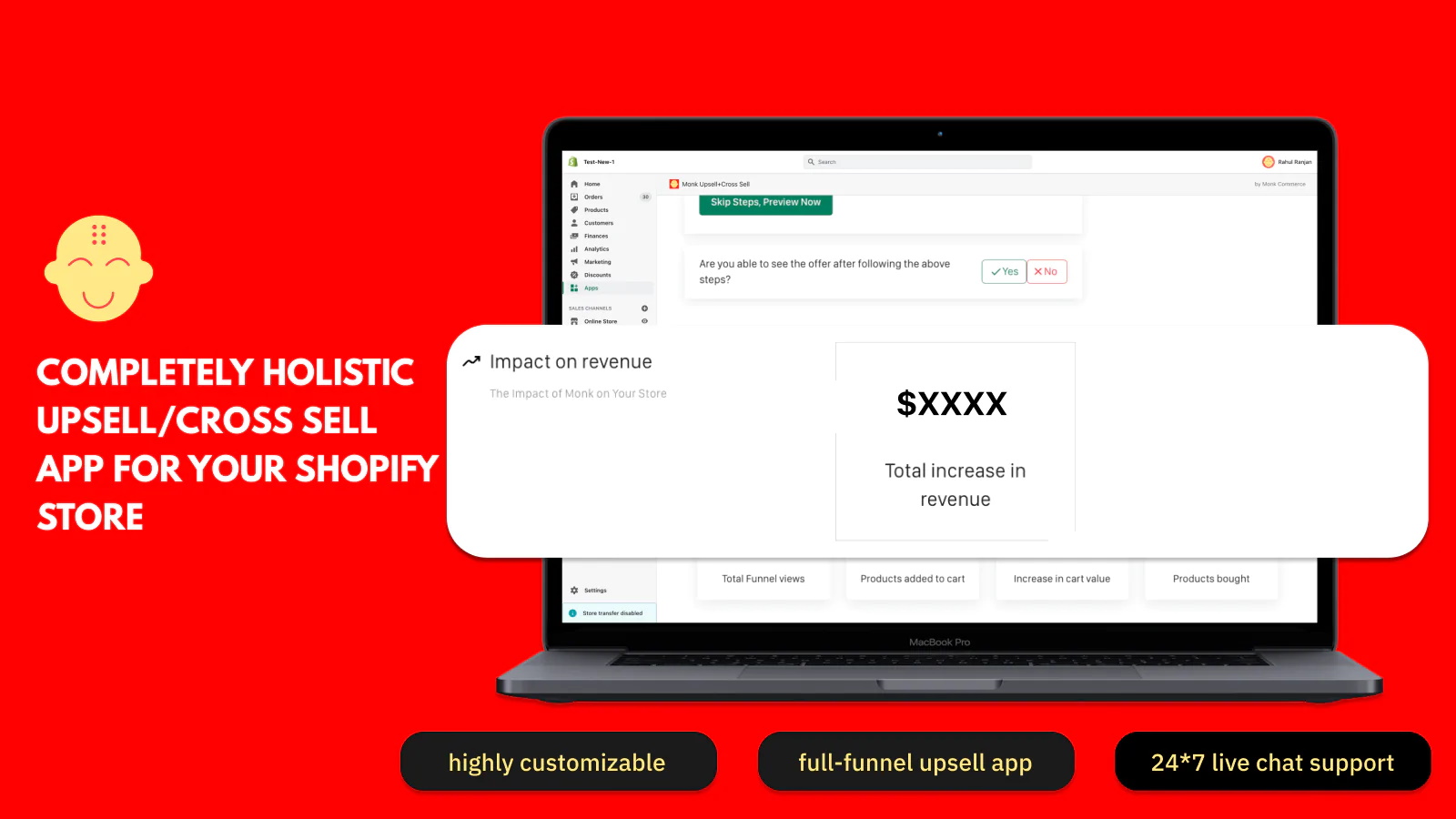Or go to our Shopify Theme Detector directly
Shopify Vs BigCommerce for Online Stores
Last modified: March 4, 2024

Feeling overwhelmed with choosing between Shopify and BigCommerce for your online store? Or maybe you’re curious to uncover how each platform can enhance your online store.
This guide will help you navigate through the differences to find the best fit for your business needs. Stay tuned to discover the unique strengths of Shopify and BigCommerce to make an informed decision for your e-commerce venture.
| # | Name | Image | |
|---|---|---|---|
| 1 |

|
Preloader
|
|
| 2 |

|
Booster: Page Speed Optimizer
|
|
| 3 |

|
Automizely SMS Marketing
|
|
| 4 |

|
In Cart Upsell & Cross Sell
|
|
| 5 |

|
Monster Upsells
|
|
| 6 |

|
Monk Cart Upsell & Free Gift
|
|
| 7 |

|
Sales Rocket 40 Marketing Apps
|
|
| 8 |

|
Vitals: All-in-One Marketing
|
|
| 9 |

|
Ship.com: Increase Sales by 50%
|
|
| 10 |

|
Ultimate Free Shipping Bar
|
|
|
Show More
|
|||
Shopify's Key Features
With over 6,000 apps available on the Shopify App Store, users can tailor their online stores extensively to meet their specific needs. These apps enhance functionality and allow for a personalized approach to e-commerce.
Shopify Point of Sale (POS) enables merchants to seamlessly merge offline and online sales channels. This integration provides a cohesive selling experience, making it easier for merchants to manage their operations across different platforms.
Shopify prioritizes site performance by offering WebP image compression, ensuring faster-loading stores for a smoother customer experience. Along with built-in SEO functionality and a user-friendly blogging CMS, merchants can enhance their online visibility and engage effectively with customers.
Bigcommerce's Strengths and Weaknesses
BigCommerce stands out for its absence of transaction fees, robust SEO capabilities, and round-the-clock live chat support. Its scalability caters to businesses aiming for growth, with pricing plans structured around annual sales.
However, BigCommerce may pose difficulties due to its steep learning curve and the requirement for technical expertise. These factors could present obstacles for users without prior experience in e-commerce platforms.
Shopify Vs BigCommerce: Themes and Designs
Shopify and BigCommerce offer a range of themes to enhance visual appeal. Shopify provides 12 free themes and over 70 priced from $150-$350, while BigCommerce offers 12 free themes and around 150 priced between $150-$300.
Shopify prioritizes aesthetic templates suited for various industries, appealing to users seeking visually pleasing designs. In contrast, BigCommerce emphasizes design flexibility, allowing for extensive customization options.
Shopify is known for its superior design functionalities, making it a preferred choice for users aiming to create visually appealing online stores. On the other hand, BigCommerce offers more customization control but may require a steeper learning curve.
Shopify Vs BigCommerce: SEO and Marketing Tools
When comparing Shopify and BigCommerce for SEO and marketing tools, it’s essential to consider specific functionalities. BigCommerce offers optimized URLs and microdata for improved search visibility, while Shopify allows customizable keywords, meta titles, and URLs for effective SEO optimization.
BigCommerce includes professional reporting tools across all plans, while Shopify reserves advanced reporting for its top-tier plan. Both platforms support Google Analytics integration for detailed marketing insights and tracking.
BigCommerce excels in SEO capabilities with a 5 out of 5 rating, while Shopify scores high with a 5 out of 5 in marketing. Understanding these distinctions can guide your choice based on your SEO and marketing requirements.
Conclusion: Shopify Vs BigCommerce for Online Stores
In wrapping up your decision between Shopify and BigCommerce for your online store, it’s essential to consider your unique needs and preferences. Shopify offers a wide range of third-party apps for easy scalability, while BigCommerce provides more built-in features but may require a bit more time to learn.
Both platforms offer unlimited products, file storage, and bandwidth, making them reliable choices for online retailers. Ultimately, the best choice for you’ll depend on your specific requirements and goals.
Remember, your online store’s success is within reach with the right platform tailored to your needs.
-
Is Shopify easy to use for beginners?
Shopify is known for its user-friendly interface, making it a great choice for beginners looking to start their ecommerce journey. With its intuitive design and easy setup process, even those with minimal technical knowledge can quickly get their online store up and running.
-
Is BigCommerce suitable for beginners?
BigCommerce may not be the most beginner-friendly platform due to its complex learning curve and the need for technical expertise for customization and setup. This can make it challenging for new users who are not familiar with e-commerce platforms.
-
What are some key features to look for in an ecommerce platform?
Key features to consider include ease of use, customization options, SEO capabilities, and customer support. Be sure to research how each platform aligns with your specific business needs and growth goals before making a decision.



 PageFly Landing Page Builder
PageFly Landing Page Builder  Shopify
Shopify  SEMrush
SEMrush  Website Maintenance
Website Maintenance  UpPromote
UpPromote